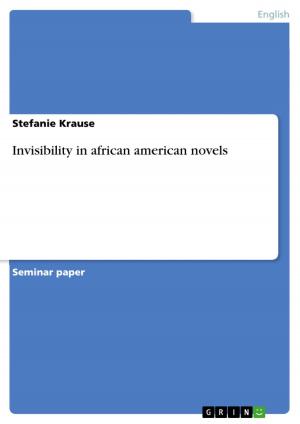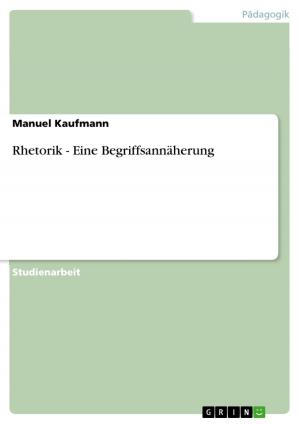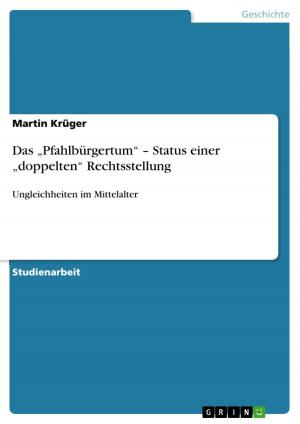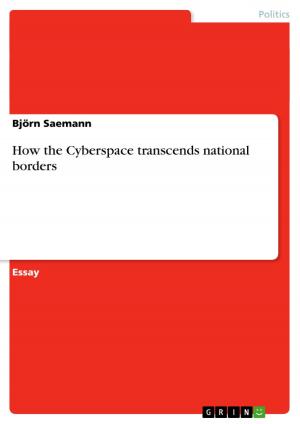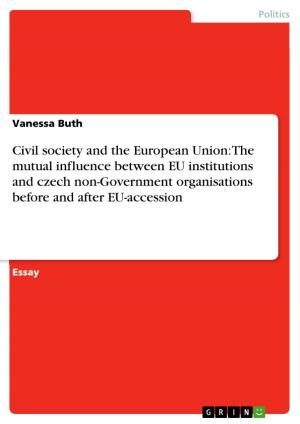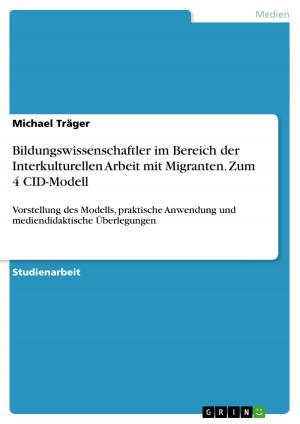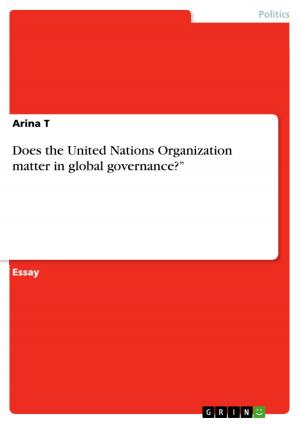Watch your language! - The debate on political correctness
The debate on political correctness
Nonfiction, Entertainment, Drama, Anthologies| Author: | Klaus Storm | ISBN: | 9783640220939 |
| Publisher: | GRIN Publishing | Publication: | November 27, 2008 |
| Imprint: | GRIN Publishing | Language: | English |
| Author: | Klaus Storm |
| ISBN: | 9783640220939 |
| Publisher: | GRIN Publishing |
| Publication: | November 27, 2008 |
| Imprint: | GRIN Publishing |
| Language: | English |
Seminar paper from the year 2000 in the subject English Language and Literature Studies - Linguistics, grade: 1,0, University of Osnabrück (Fachbereich Sprach- und Literaturwissenschaft), course: English as a Global Language, 11 entries in the bibliography, language: English, abstract: Especially in the current German 'Nationalstolzdebatte' the term 'political correctness' has it's comeback in the 21st century. Laurenz Meyer is proud of his country. But: are you still allowed to be a German patriot (after the holocaust of the 3rd Reich took place here)? Is this pc? His opponent in this debate is the minister for environmental issues, Juergen Trittin. He called his antagonist a 'Skinhead'. Can you compare a politician with a neo-nazi that lays violent hand on somebody? Is this pc? Generally: The question 'pc or not pc' appears whenever a taboo is discussed. But what exactly is political correctness? How did the term emerge? Where are the origins of the pc-myth? What is the history of the pc-debate? This essay will try to give the answers. In the first chapter I will show the roots of the term 'political correctness'. The historical development will be shown. The debate about censorship and political dependence of pc is portrayed as well. Later I will focus even more on the linguistic aspects of pc. The prime linguistic questions are described and some expressions are examined. Finally there is a short analysis of the need for speech codes.
Seminar paper from the year 2000 in the subject English Language and Literature Studies - Linguistics, grade: 1,0, University of Osnabrück (Fachbereich Sprach- und Literaturwissenschaft), course: English as a Global Language, 11 entries in the bibliography, language: English, abstract: Especially in the current German 'Nationalstolzdebatte' the term 'political correctness' has it's comeback in the 21st century. Laurenz Meyer is proud of his country. But: are you still allowed to be a German patriot (after the holocaust of the 3rd Reich took place here)? Is this pc? His opponent in this debate is the minister for environmental issues, Juergen Trittin. He called his antagonist a 'Skinhead'. Can you compare a politician with a neo-nazi that lays violent hand on somebody? Is this pc? Generally: The question 'pc or not pc' appears whenever a taboo is discussed. But what exactly is political correctness? How did the term emerge? Where are the origins of the pc-myth? What is the history of the pc-debate? This essay will try to give the answers. In the first chapter I will show the roots of the term 'political correctness'. The historical development will be shown. The debate about censorship and political dependence of pc is portrayed as well. Later I will focus even more on the linguistic aspects of pc. The prime linguistic questions are described and some expressions are examined. Finally there is a short analysis of the need for speech codes.

